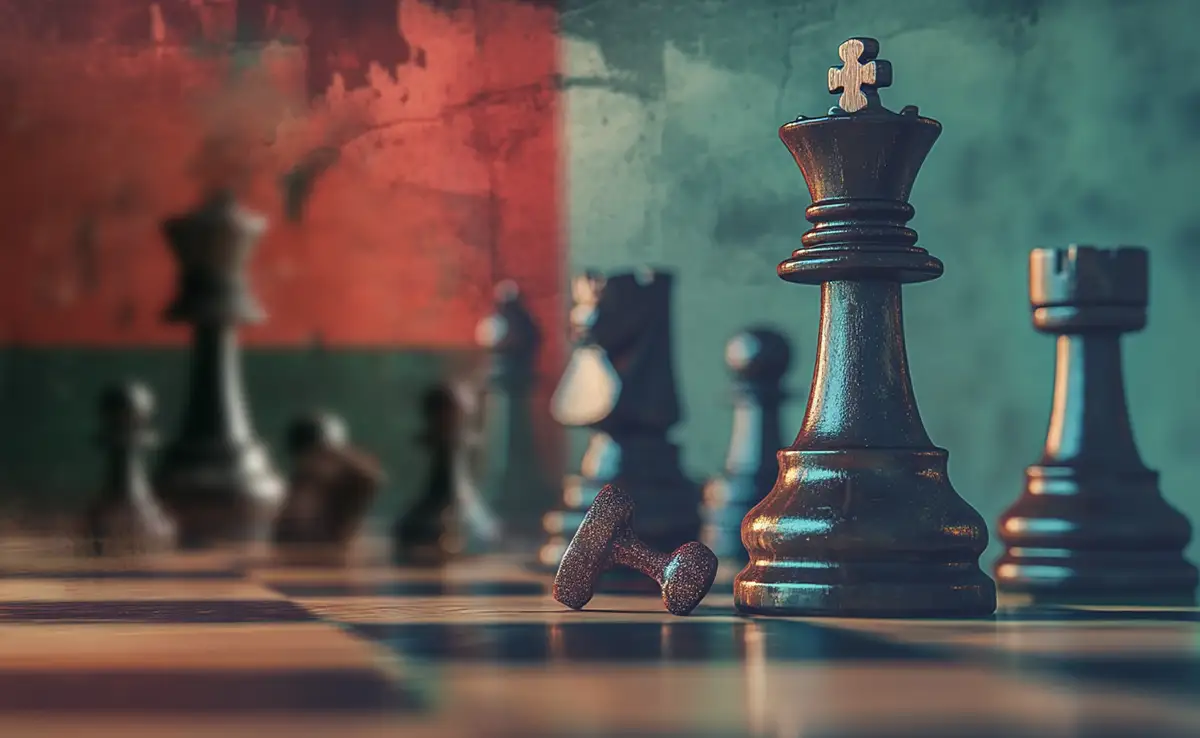Taliban Bans Chess in Afghanistan: A Step Back for Sports and Women’s Rights
In a surprising move that has stirred global reactions, the Taliban government in Afghanistan has officially banned the game of chess, calling it “haram” (forbidden) on religious grounds. This decision has shocked the global chess community, especially in Afghanistan, where the game had once been a symbol of intellectual development and sportsmanship.

Why Did the Taliban Ban Chess?
According to Taliban authorities, the game of chess promotes gambling and is a distraction from religious duties. They argue that such activities are against the teachings of Islam. The ban is in line with the Taliban’s strict interpretation of Islamic laws, under which various forms of entertainment have been restricted. This is not the first time chess has faced such a ban; during their previous rule in the late 1990s, the Taliban had also prohibited the game.
As expected, this ban has raised concerns, especially among Afghanistan’s youth and intellectual community. Chess, often called the “game of kings,” has a rich history in many cultures, including Afghanistan, where it has been played for centuries. It is also seen as a sport that encourages critical thinking, problem-solving, and mental agility, qualities that are essential for the growth of any society.
Impact on Afghan Chess Players
The ban has deeply affected the local chess community in Afghanistan. Before the Taliban took control again in 2021, Afghanistan had a growing chess scene, with clubs and tournaments actively taking place. However, following the return of the Taliban, these clubs have either shut down or gone underground, and many players have been forced to either give up the game or flee the country.
Sepehr Sekhawaty, a chess enthusiast from Herat, shared his experiences of how the sport is struggling to stay alive in Afghanistan. He explained how, after the ban, he has to play chess alone in isolation because there is no one to play with. His story highlights the challenges faced by people who are passionate about chess in a country where the sport is now seen as forbidden.
The Larger Picture: Taliban’s Impact on Afghan Society
The Taliban’s decision to ban chess is part of a larger effort to restrict cultural activities in Afghanistan. It’s clear that the Taliban views entertainment and sports as a threat to their vision of a strictly religious state. Along with banning chess, they have also enforced harsh rules on women’s rights, limiting their freedom to participate in public life, including in sports and educational institutions.
This ongoing clampdown has led to widespread criticism from human rights groups and international organizations. Many believe that such restrictions will only harm Afghan society in the long run, stifling creativity, innovation, and intellectual growth.
Despite the challenges, there are still individuals and groups working to keep the spirit of chess alive in Afghanistan. International organizations, including chess federations, have expressed solidarity with Afghan players and are seeking ways to help revive the game in the country.
It’s uncertain when or if the Taliban will reconsider their decision to ban chess. However, the move has sparked conversations worldwide about the role of sports in society and the importance of intellectual freedom.
Inflect.in — Your daily dose of stories that inform, inspire, and ignite curiosity. Follow us for more!
Inspire
Latest Post

AI in Healthcare: Smarter, Faster, and Accessible

Is Co-Sleeping Safe for Babies? Pros, Risks,

Pomegranate Benefits: Why Eating Anar or Drinking

Ma Yansong: Shaping the Future of Architecture

AI in Healthcare: Smarter, Faster, and Accessible

Is Co-Sleeping Safe for Babies? Pros, Risks,

Pomegranate Benefits: Why Eating Anar or Drinking








